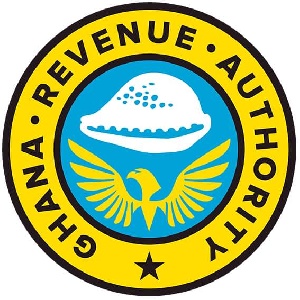- Home - News
- Elections 2024
- News Archive
- Crime & Punishment
- Politics
- Regional
- Editorial
- Health
- Ghanaians Abroad
- Tabloid
- Africa
- Religion
- Photo Archives
- Press Release
General News of Friday, 4 April 2025
Source: www.ghanawebbers.com
Coconut Grove CEO calls for targeted interventions to formalize operations of Ghana's informal sector
Mr. Ralph Ayitey is the National Treasurer of the Association of Ghana Industries (AGI). He is also the CEO of Coconut Grove Regency Hotel. He has urged the government to help formalize Ghana's informal sector.
Ayitey spoke at the launch of the 2025 Integrated Business Establishment Survey (IBES) report. This report was released by the Ghana Statistical Service. He noted that about 62% of commercial enterprises are in the informal sector. This sector employs around 65.3% of Ghana's active labor force.
He highlighted that this sector contributes approximately 35.6% to Ghana's GDP. However, its impact is often underestimated due to unreliable data. Ayitey believes that the IBES report will help fill this data gap. He praised the Ghana Statistical Service for this initiative, which AGI supported.
Ayitey stated, "This should show us how many businesses are outside the tax net." He called for targeted interventions to help formalize informal operations. A growing informal sector does not benefit fiscal policies.
To tackle challenges in this sector, Ayitey suggested a multi-sectoral approach. This should involve various ministries, including Food and Agriculture and Tourism. He also recommended developing bankable proposals for agri-businesses and other informal enterprises.
He emphasized making it easier for informal operators to enter the formal sector. Simplifying formalization processes and reducing costs could help achieve this goal. Providing incentives for registration and compliance with tax laws is essential.
"If we motivate informal businesses to formalize, tax revenue will increase," he said. Ayitey believes operating a structured business pays off but requires more support from authorities.
Formalizing operations can boost tax revenue, productivity, and job creation in Ghana. "We need public dialogue on our data needs as a country," he concluded.
**Ghana’s Poultry Industry**
Ayitey also discussed challenges facing Ghana's poultry industry amid rising imports of frozen chicken. He noted that Ghana consumes about 600,000 imported chickens daily.
"This shows our local poultry industry struggles to meet demand," he said. He questioned why so much chicken is imported when local production is possible.
He stressed that self-sufficiency in poultry production requires collaboration among stakeholders like farmers and government officials. Supporting local farmers with resources and incentives is crucial for increasing production.
High production costs hinder competition against imported chicken, according to Ayitey. He suggested introducing protective policies like tariffs on imports or incentives for local producers.
"We need to make eating local chicken fashionable again," he urged. Promoting local poultry can reduce reliance on imports while creating jobs and boosting economic growth.
Ayitey pointed out that an acre can host a profitable six-storey poultry farm compared to an eight-storey apartment block. Innovative support for local industries is necessary for progress.
By backing the local poultry industry, Ghana can lessen its dependence on imports while stimulating economic growth and job creation. "Let’s work together to promote our poultry industry," Ayitey concluded.











